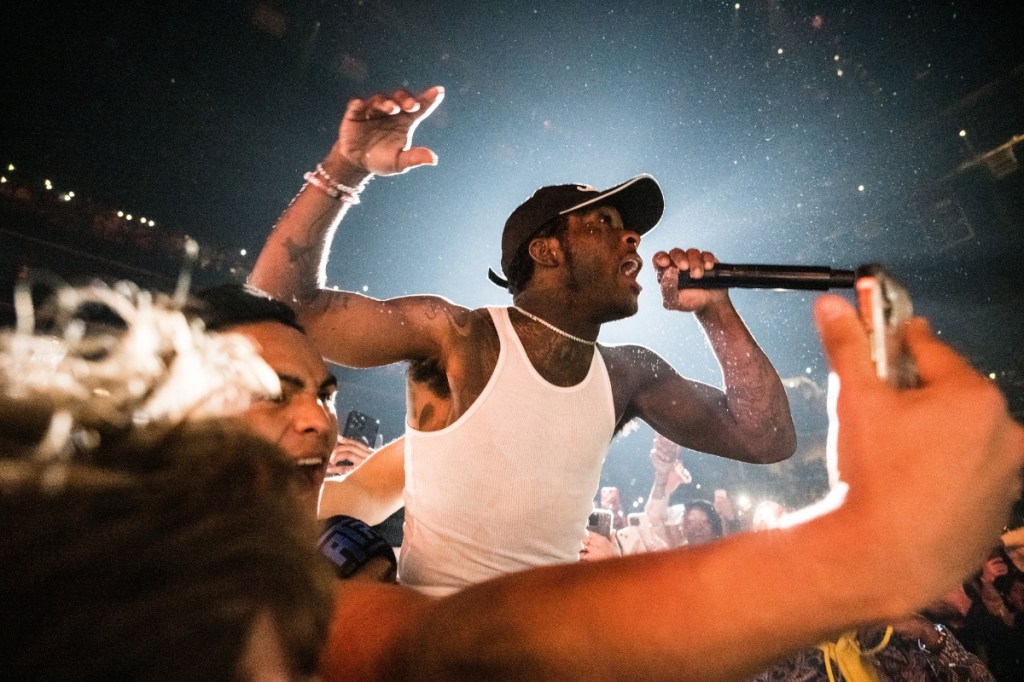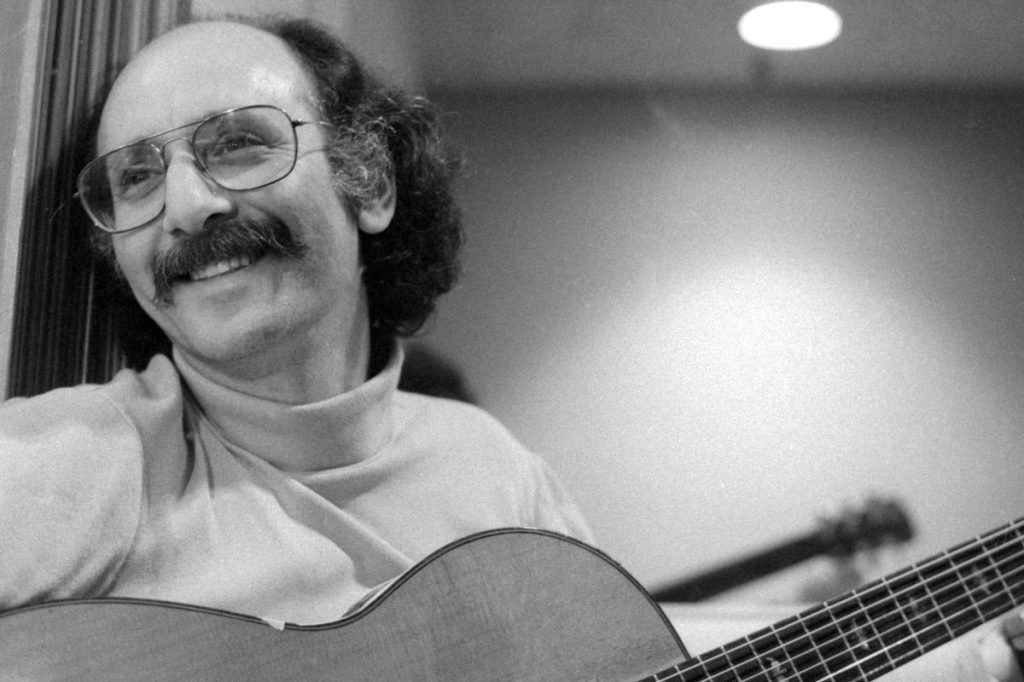John Hinckley Jr., the 66-year-old man who tried to assassinate President Ronald Reagan in 1981, has been posting acoustic guitar-led songs and covers to a YouTube channel he created in November 2020. His page features just a handful of videos, four of which are original songs, two are renditions of Bob Dylan and Elvis Presley tracks, and one is a video of a 78rpm vinyl record playing Arthur “Big Boy” Crudup’s 1944 blues single “My Mama Don’t Allow Me.” The songs aren’t bad: Hinckley has a nice, approachable voice and a solid ear for writing melodies in his own songs and recreating them in faithful covers. People have begun to notice because over Memorial Day weekend, Twitter user sludge_worm posted a viral screenshot from the channel. As of press time, the tweet has over 62,000 likes and Hinckley’s YouTube page now boasts thousands of subscribers.
In 2011, after the shooting of Congresswoman Gabrielle Giffords, Hinckley reportedly expressed dismay to his doctors about his public perception. “I don’t have a microphone in my hand,” he allegedly said. “I don’t have the video camera. So no one can hear my music. No one can see my art. I have these other aspects of my life that no one knows about. I’m an artist. I’m a musician. Nobody knows that. They just see me as the guy who tried to kill Reagan.” Hinckley has long desired to be known for more than trying to murder the President of the United States, and now thanks to a little viral internet fame, maybe he will be.
Videos by VICE
Hinckley was found not guilty of the assassination attempt due to reasons of insanity and never spent any significant time in prison, and he was released in 2016 from St. Elizabeth’s psychiatric hospital, where he had been confined and in treatment for 34 years. Since leaving the government facility, Hinckley has been living with his mother in Williamsburg, Virginia and has been progressively granted greater freedoms from court supervision. Under the current terms of his release, he still has to volunteer or work three times a week, own a traceable phone to track his movements, attend counseling and take his medication, abstain from drugs, alcohol, and violent media, cannot legally own a firearm, and has to check-in to the court by telephone as well as complete daily activity logs.
He is currently petitioning a federal judge for an “unconditional release,” which would significantly increase his freedoms. In 2020 he was allowed to publicly post and legally sell his artwork, writings, and songs, which he was barred from doing so as part of his initial treatment plan. Before these restrictions were lifted, prosecutor Kacie Weston warned of how Hinckley would handle the public scrutiny of his work. “That is one of the very untested areas as to how he will handle either critique or success, should that go in either direction,” she said. For his part, Hinckley told the court that he felt he was ready to make money from his music and art. “I create things I think are good and, like any other artist, I would like to profit from it and contribute more to my family,” he said. “I feel like I could help my mother and brother out if I could make money from my art.”
Music has long been one of Hinckley’s greatest passions. In the 1970s, he moved to Los Angeles to try and become a professional songwriter. Though that failed, he continued to pursue music at St. Elizabeth’s hospital where he told Penthouse magazine in 1983 that a typical day for him included playing an instrument. “I see a therapist, answer mail, play my guitar, listen to music, play pool, watch television, eat lousy food, and take delicious medication,” he said. According to Twitter users who saw the original viral tweet, Hinckley has also been a regular at a Williamsburg, Virginia record store with one person claiming to have bought his pre-owned CD copy of Bright Eyes’ I’m Wide Awake, It’s Morning. According to the New York Times, Hinckley has been posting his songs anonymously on SoundCloud and YouTube since 2018 under the supervision of his music therapist and has been “disappointed in the small number of people who have listened.” Thanks to one viral tweet, he now has an audience in the tens of thousands.
As of press time, Hinckley has yet to respond or acknowledge the newfound interest in his music. In 2020, his music therapist told the New York Times, “I worry he’s a well-known figure and I worry about someone trolling him.” Looking at the comments on Hinckley’s original song “Majesty of Love,” his most viewed video at well over 38,000 plays, there are several joking comments about his 1981 assassination attempt. Hinckley has previously stated that he wants feedback on his songs and an audience; he’s certainly getting that now.
More
From VICE
-

Sacha Lecca/Rolling Stone/Getty Images -

Spencer Platt/Getty Images -

Jon MorganCBS via Getty Images -

Sherry Rayn Barnett/Michael Ochs Archives/Getty Images
